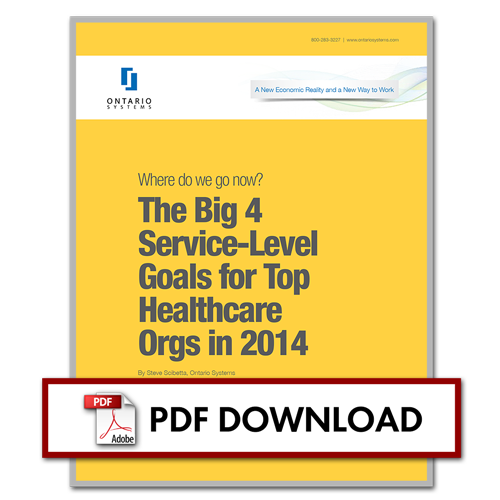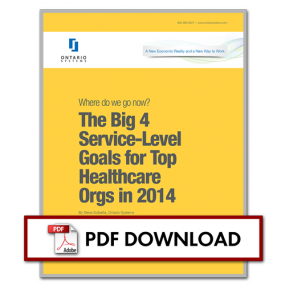
 It’s more difficult to measure how well a healthcare business office is functioning now that the Patient Protection and Affordable Care Act (PPACA) has come to bear.
It’s more difficult to measure how well a healthcare business office is functioning now that the Patient Protection and Affordable Care Act (PPACA) has come to bear.
That’s because in today’s healthcare finance landscape, the old standards revenue cycle managers used to measure performance have largely been superseded by metrics that focus on the patient. The patient, even more than the insurance carrier, has become the central figure in healthcare financial management.
You must be logged in to download free reports.
If you don’t have an account yet, registration is free and simple.
Ontario Systems‘ new whitepaper, The Big 4 Service-Level Goals for Top Healthcare Orgs in 2014, lays out the four goals and the steps needed to achieve them.
The Big 4 Service-Level Goals for Top Healthcare Orgs in 2014
http://www.insidearm.com/freemiums/the-big-4-service-level-goals-for-top-healthcare-orgs-in-2014/
http://www.insidearm.com/feed
insideARM















